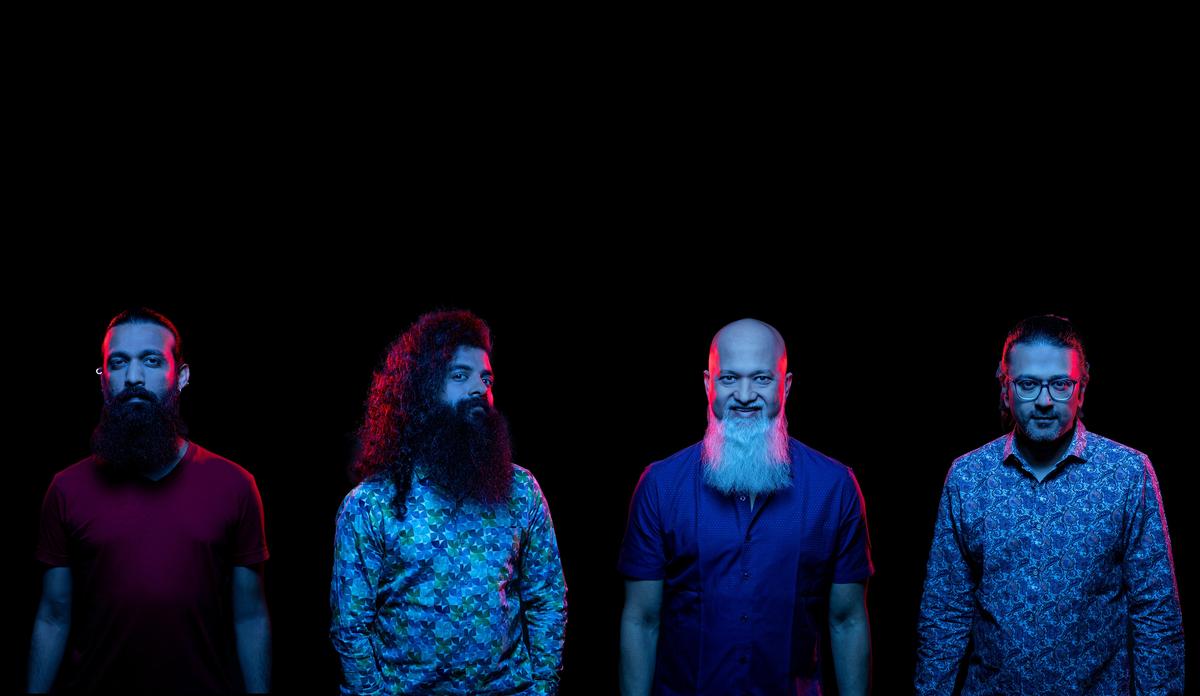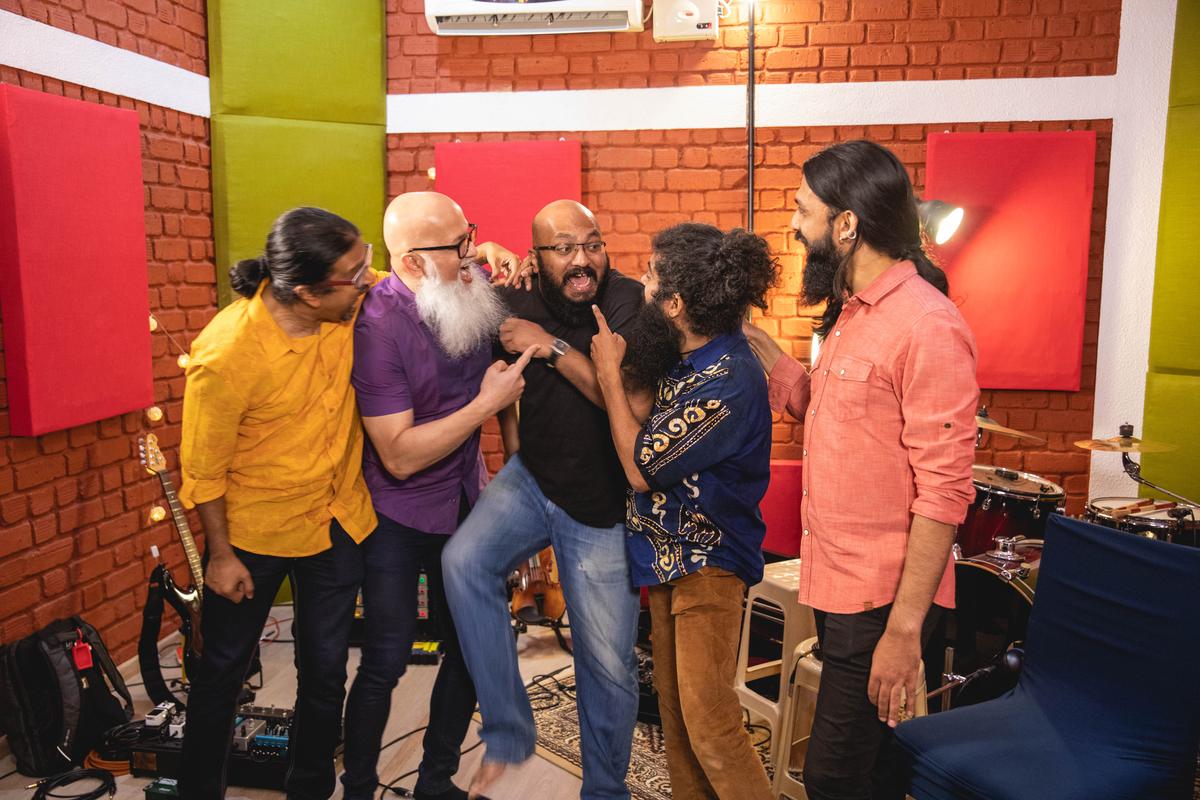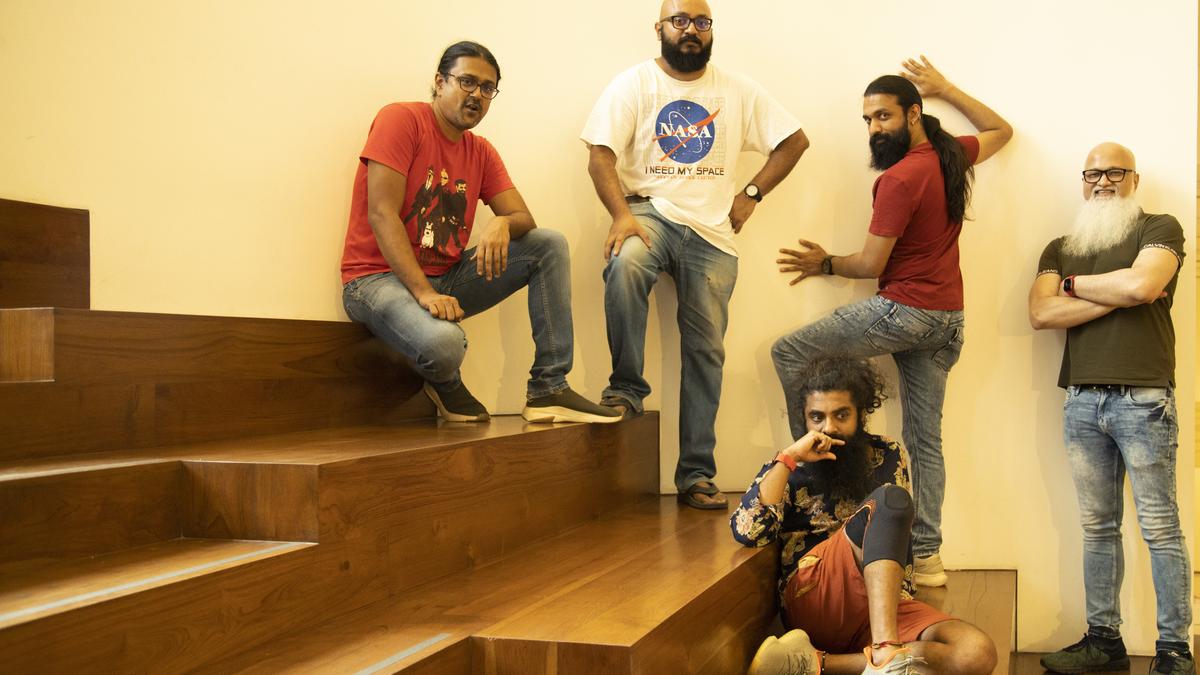The dusty road stretched ahead. Inside the car, the song Swarathma was playing. A few months ago, the members of the Bengaluru-based folk-rock music band were on a research trip with the Selco Foundation, where they were collaborating on songs for their initiative to bring clean energy to rural areas. Amidst the bursts of creative energy, a question struck a chord.
“We were sitting in the car writing music,” recalls bassist and vocalist Jishnu Dasgupta. “That’s when the idea came to us that if solar power can light up villages, why not concerts?” This question ignited the idea for Swarathma’s upcoming multi-city concert tour (for their latest album). Roshan), which will be powered by solar energy.
The tour started from Mumbai on May 25 and reached Bengaluru on June 1 and then Pune, Hyderabad, Indore, Delhi and Jaipur. The songs from the album will be released one by one as the band visits these cities.
“While there may have been some attempts at solar-powered concerts before, our goal is bigger than that,” says Jishnu. “We want to demonstrate that there is a viable alternative to conventional energy for live events. We hope this becomes the norm, replacing the fossil fuels typically used for concerts.”
“It’s not just about a unique stage setup; it’s about proving that even large concerts with 1,000 people can run on renewable energy. That’s the real challenge and that’s what excites us the most. Of course, we’re also excited to play these concerts for our fans,” he added.
The traditional method of powering music festivals relies on loud, polluting diesel generators. Jishnu highlights this challenge: “Amplification systems don’t care if the power source is clean or not. The long working hours and the need for reliable power during a music festival make generators a common practice.”
Swarathma’s solution is a unique, multi-step approach. Jishnu explains: “Ideally, we would have solar panels to power the concert directly, but that’s not always possible. Our current system uses a large battery bank charged from clean energy sources whenever possible. This battery can power the sound system for the entire concert.”
This initial tour focuses on powering the sound system. In the future this may include lighting and visuals. Jishnu stresses the importance of a measured approach: “Sound systems use constant power, while lighting can fluctuate. We are starting by powering only the sound to ensure stability before possible expansion.”
The ultimate goal is to inspire widespread change within the music industry. Jishnu and the band envision a future where every city has a system like this. “Imagine fans demanding eco-friendly concerts! It’s about artists, music lovers, and the entire ecosystem working together for a more sustainable future,” he says.
Message through music
Swarathma’s commitment to social consciousness is nothing new. Her music has always been a platform for social commentary, with narratives about various issues woven implicitly and explicitly into her voice.
“Many of our songs touch upon social issues, but this concert won’t be a celebration with an environmental message. It will be a typical Swarathma show with all our favourite songs and some new stuff we are working on. We are known for writing socially conscious music, but it’s not something forced – it comes naturally through our songwriting,” says Varun Murali, another vocalist and guitarist of Swarathma.
Jishnu says, “Artists don’t have all the answers, but we can be powerful amplifiers. Music brings people together, creating a sense of community and shared experience. We can use that power to reflect how we feel about the world around us. It’s not about preaching; it’s about using music to connect with our audience and explore what we care about together.”
Varun, known for his social awareness, emphasised that Swarathma gives priority to artistic freedom, but not every song needs a social message.
“Art is a personal expression. Some artists create for purely personal reasons, like expressing love through a song. It’s unfair to expect every artist to have a social message. It’s like celebrities facing criticism for not knowing every fact,” he says, adding, “In the case of Swaraathma, our music is not a conscious social commentary. The world around us naturally influences what we write about. We haven’t aimed to be a socially conscious band.”
Swarathma | Photo credit: special arrangement
The world of reels and likes
The digital age has changed the way bands connect with their audiences. For Swarathma, social media is a double-edged sword, playing a crucial role in this regard. Varun admits that it brings pressure. “Social media is a double-edged sword. It is something you have to deal with, whether you like it or not. But as long as this pressure doesn’t force us to make music that we are not happy with, I think it’s okay,” he says.
Jishnu agrees with Varun. “We weren’t there when social media took off, so this is new territory for us. We are learning ways to create a positive experience using social media, something that doesn’t compromise the music. It’s all about finding the right bridge to connect with listeners.”
“But ultimately,” he says, “the real connection comes from performing live and knowing that our music has meaning in people’s lives.”

Swarathma | Photo credit: special arrangement

Swarathma | Photo credit: special arrangement
